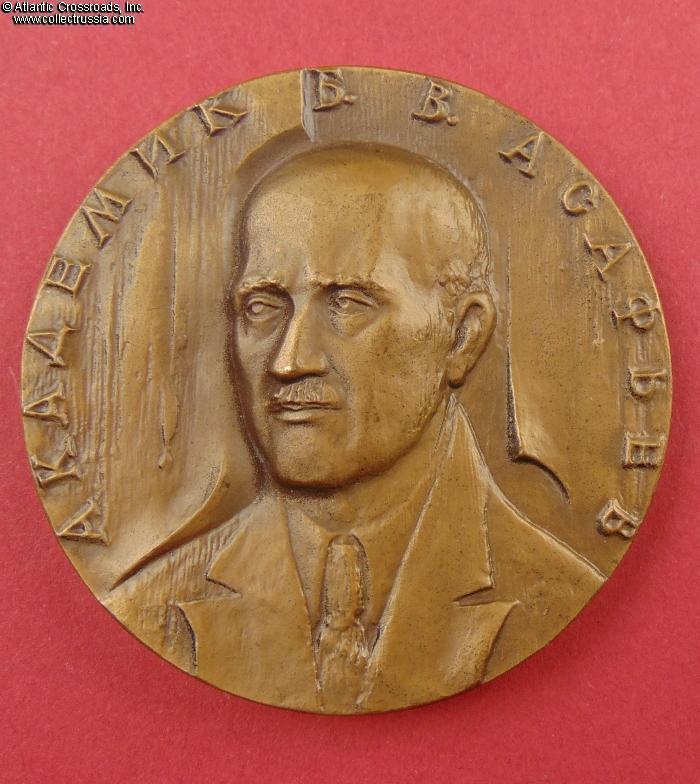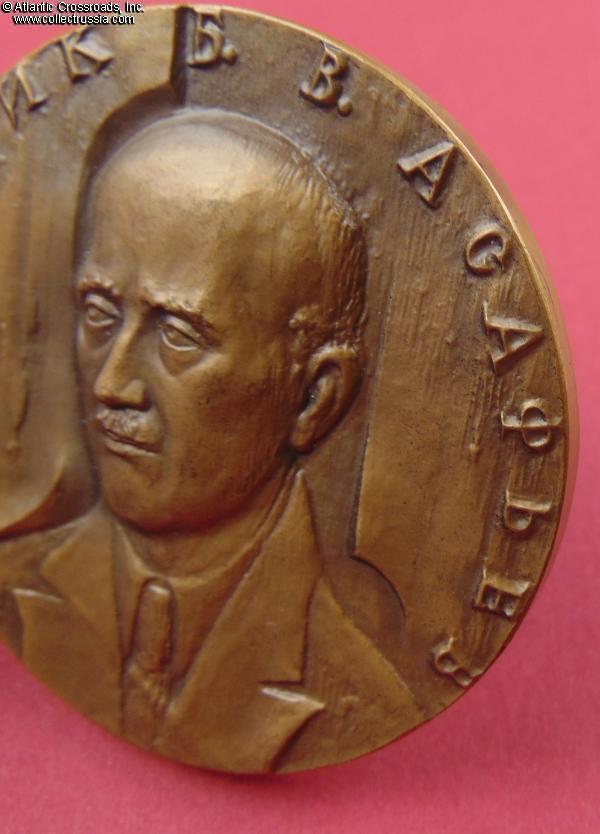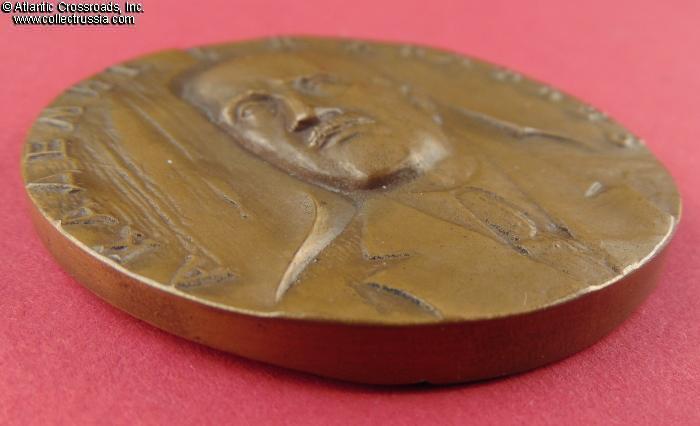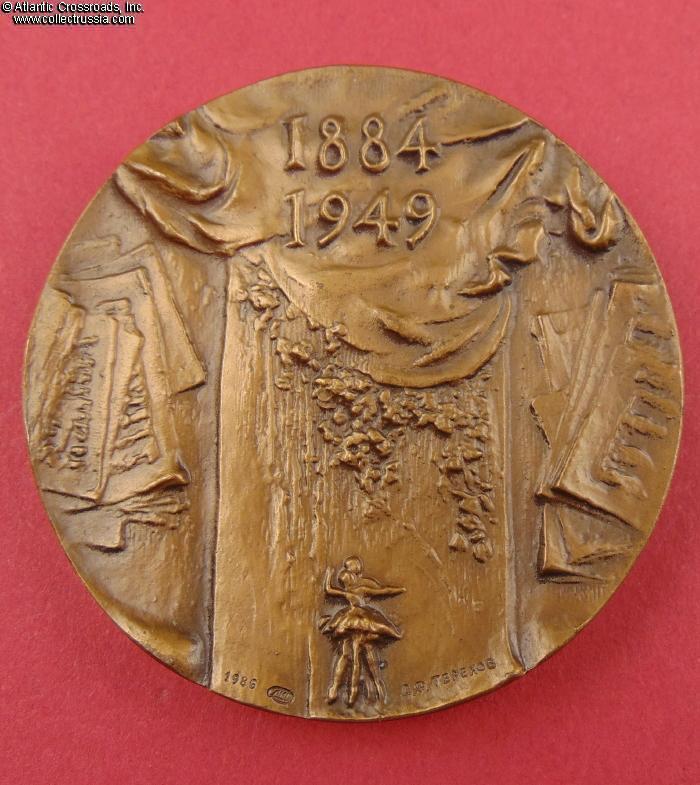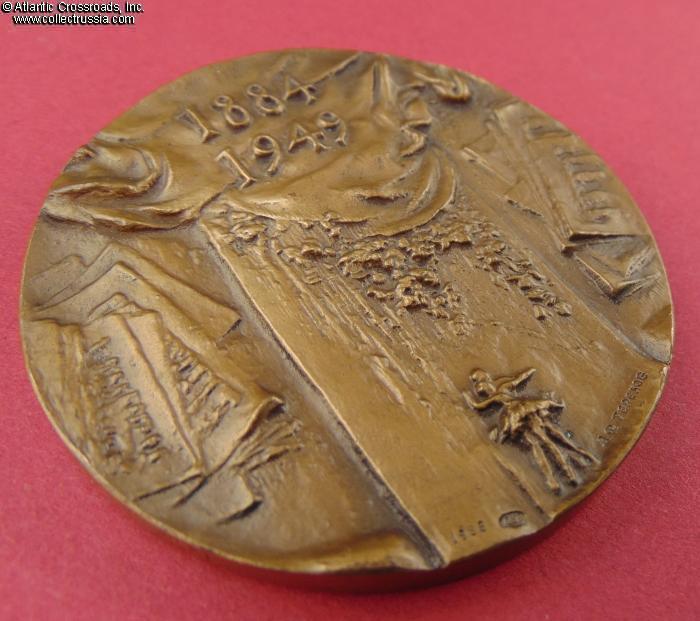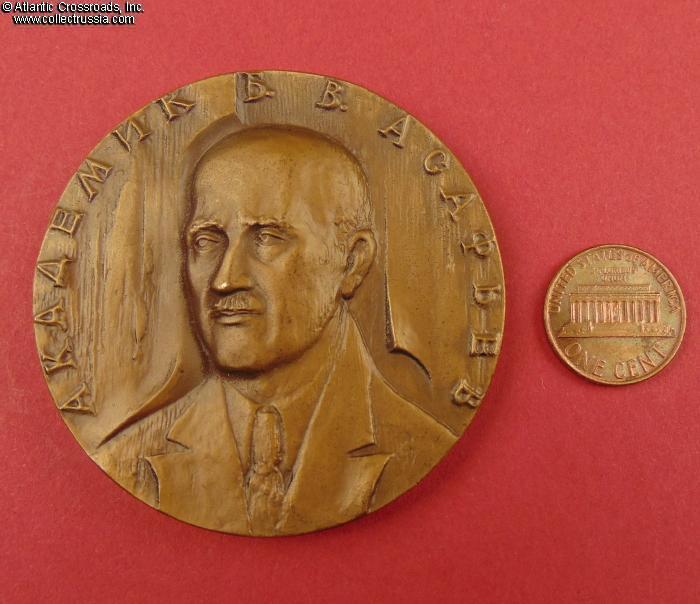Table Medal in Commemoration of the Centennial of Birth of Academician Boris Asafyev, 1986.
In bronze, 60.2 mm wide; weighs 110.3 g. The obverse shows bas-relief portrait of Asafyev and raised inscription "Academician B. V. Asafyev". The elaborate artwork on the reverse includes a scene of classical ballet, sheet music and theater curtain. In the upper part are the dates of Asafyev's life: 1884-1949. Along the lower edge appear the recessed date 1986, logo of the Leningrad Mint and the name of the creator of the medal D. F. Terekhov.
The medal is in excellent condition. There are no dings or scratches; the raised details are perfect and crisp. The finish to the brass is uniform and attractive.
Boris Asafyev was a prominent classical composer and researcher of music theory. Born to the family of a humble civilian employee in St. Petersburg, he showed interest in music from early childhood and thanks to the efforts of his father, attended many musical performances in the Russian capital. Despite his family's meager means, he learned to masterfully play piano and flute, enrolled in the History and Philology Department of the St. Petersburg University, started to write music, and even mustered courage to present his creations to the world-renowned musical genius Rimsky-Korsakov. Encouraged by the famous composer, Asafyev enrolled in the St. Petersburg Conservatory where he received a scholarship and at the same time began collaboration with other influential musicians of the period. Soon, he created his first opera and became a notable music critic under the pen name Igor Glebov.
Like many others in the Russian intelligentsia, Asafyev welcomed the downfall of the monarchy in early 1917 and the Bolshevik takeover later that year. Unlike many others however, he chose to stay in Russia in the aftermath rather than move abroad. He enthusiastically worked for the new regime becoming a professor of musical theory at the State Institute for the History of the Arts and creating the score for the first Soviet ballet in 1918. In the early 30s, while threading the party line as it related to "people's music" he nevertheless managed to create outstanding ballets "The Flames of Paris" with its renowned Basque Dance and "The Fountain of Bakhchysarai" with the no less famous Tatar Dances. To this day, both ballets are performed on theater stages around the world.
When political winds turned chilly in the mid- to late-30s, Asafyev was blamed for failing to adequately protect his protégé Shostakovich from scathing criticism of the Soviet musical officialdom. Although Asafyev avoided the worst of the repressions, he himself also became a target of scorn and was temporarily dismissed from his position of top musical consultant at the Kirov Theatre. However, he was soon promoted again and bestowed the Title of Honored Performance Artist of RSFSR. Later, he was made a full member of the Soviet Academy of Sciences and was even given a Stalin Prize 2nd cl. in 1948 for his book on Stravinsky and Glinka. After surviving the siege of Leningrad during WW2, he continued to work as a musicologist, scientific consultant and archivist, and composed music until his death in 1949.
The medal was struck in 1986 - with a two-year delay from the date of the anniversary - at the Leningrad Mint. It had a circulation of just 850 specimens, a very small number by Soviet standards.
/Commemorative [Table] Medal of the Soviet Period, 1919 - 1991, A. Shkurko, A. Salykov, fig. 1662/
Please note, penny in our photo is for size reference.
Item# 44125
$110.00 Add to cart
